During the 2025 World Artificial Intelligence Conference (WAIC), Cloopen AI successfully hosted the "Reinventing Lift Power - AI Initiates New Growth" AI Agent Implementation and Industry Innovation Forum.
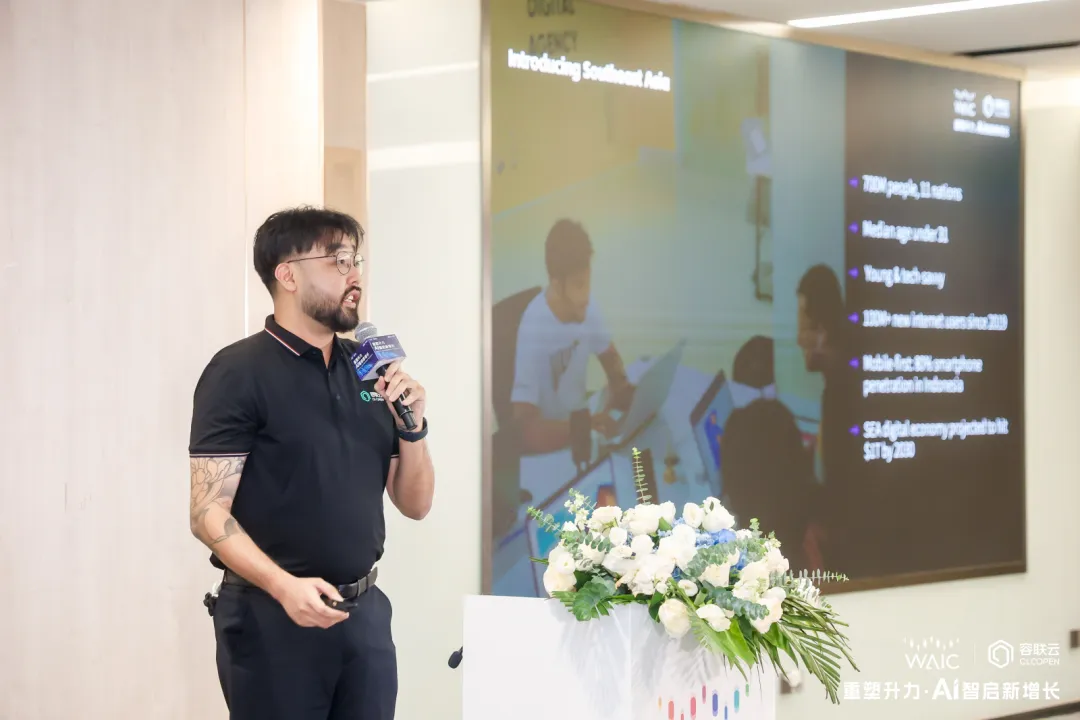
On the forum, Simon Amran, the Director of Digital Intelligence Solutions at Cloopen AI in Southeast Asia, delivered a keynote speech, focusing on the large-scale implementation of AI Agents in industrial scenarios. Starting from the Southeast Asian market, Simon explained how AI virtual agents can empower enterprises to break through regional operational bottlenecks, and clearly pointed out: "In Southeast Asia, AI is not a luxury, but a practical solution to address real challenges."
The collision between the growth dividends of the Southeast Asian market and the operational pressures
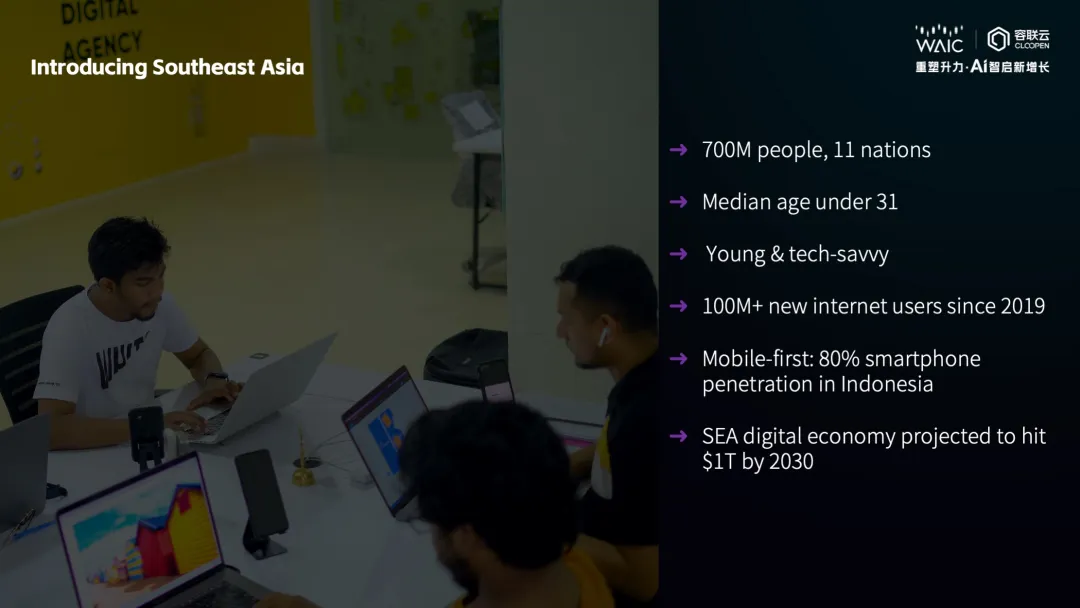
As a diverse region with a population of 700 million and 11 countries, Southeast Asia is demonstrating remarkable digital vitality. The younger population structure has accelerated the popularization of mobile digital services. Data shows that the scale of its digital economy is expected to exceed 1 trillion US dollars by 2030. However, regional diversity brings core challenges such as multilingual services, cross-time zone responses, and talent shortages. The traditional manual customer service model faces operational breakdowns in high-concurrency scenarios like holiday promotions. Meanwhile, consumers have become accustomed to immediate services - since they can place orders instantly, they expect immediate responses; while enterprises are facing high costs of multilingual services, inconsistent cross-channel experiences, and insufficient manpower during peak periods. He emphasized: "The pace of regional growth has exceeded the carrying capacity of traditional operation systems. Digital transformation is no longer an option but a survival necessity."
The four major pain points of enterprises have driven the practicalism of AI implementation to become the core demand.
Simon pointed out that the operational challenges faced by enterprises in Southeast Asia are concentrated in four aspects:
- Complexity of multiple languages: It is necessary to cover various languages and dialects, and the recruitment and training costs are high, and it is difficult to ensure uniform service quality;
- Overload during peak periods: During promotional activities and during holidays, the consultation volume may increase by 10-20 times compared to the daily level, and the manual team cannot expand quickly, resulting in the waiting time extending from minutes to days;
- Fragmentation of channels: Customers may consult through chat software, voice calls, social platforms, etc., and the data silos lead to a disjointed experience of "talking one way in chat and another way in voice";
- High staff turnover rate: Especially in regions with concentrated call centers, the employee turnover rate is high, and repeated training further increases costs, and the service quality fluctuates significantly.
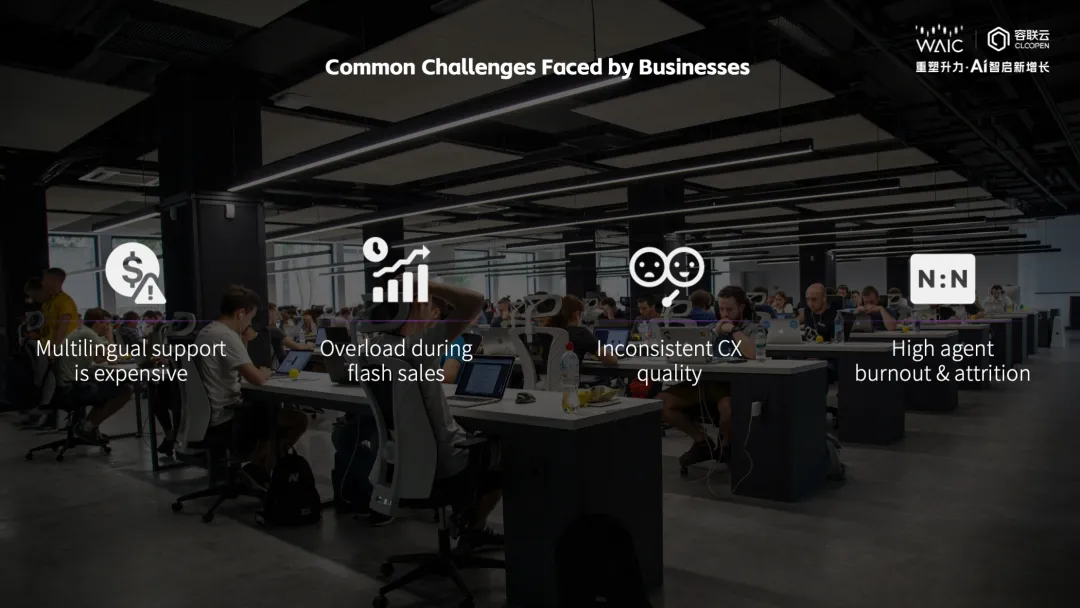
These problems cannot be solved simply by increasing manpower. What enterprises need is an intelligent solution that can standardize services while also allowing for flexible expansion - AI is not meant to replace humans, but to enable them to focus on high-value tasks and delegate repetitive work to automation.
Cloopen AIVirtual Agent Solves the Overall Link Disruption in Operations
Facing the common service capability gap among enterprises in Southeast Asia, Simon detailed the four breakthrough capabilities of the overseas version of Cloopen AIVirtual Agent:
- Cross-channel collaboration: Maintain the consistency of the conversation context across channels to ensure that customers can receive a consistent experience on any channel, eliminating the information fragmentation of multiple platforms such as WhatsApp and voice;
- Deep localization language capabilities: Smartly handle 60%-80% of standardized inquiries, compress the response time for high-frequency multilingual consultations to seconds, support mainstream languages and dialects, and allow customization of brand tone to avoid a mechanical feel;
- Seamless human-machine collaboration: Combine sentiment analysis and confidence models to achieve precise human transfer, releasing human resources to handle high-value customer needs, ensuring efficiency while upholding the service bottom line;
- Multiple deployment methods: Adapt to the compliance requirements of industries such as finance, and include compliance components to adapt to regional regulatory frameworks.
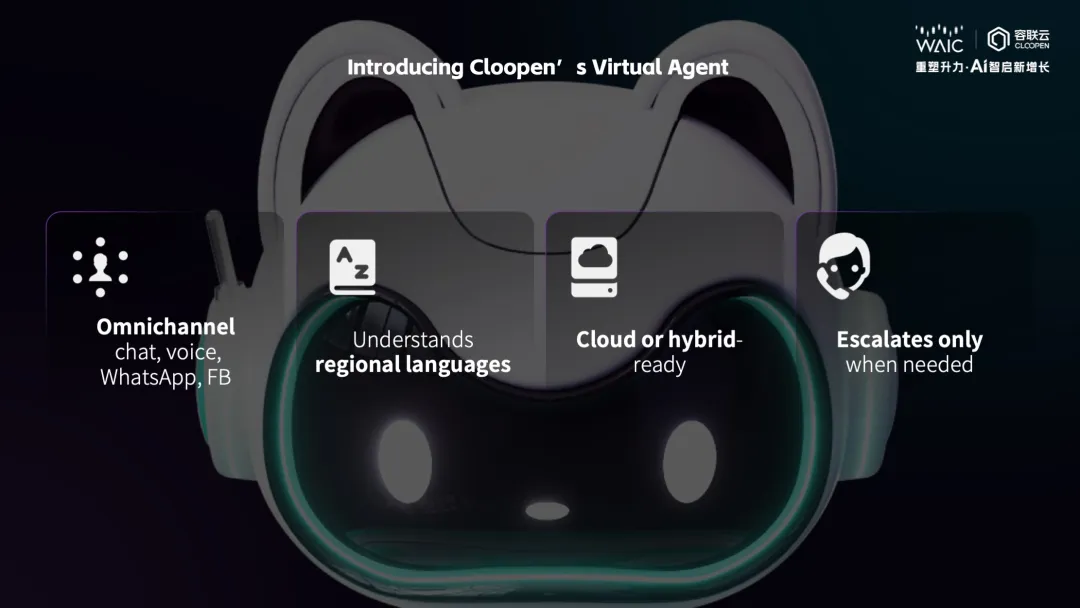
Take a certain Southeast Asian retail enterprise as an example. This company offers services in 3 languages. During promotional weeks, there are usually over 1,000 unanswered inquiries. The problem-solving cycle lasts for 2 to 3 days, and the customer churn rate keeps rising. After deploying Cloopen AI Virtual Agent, the system automatically handles standardized inquiries such as order inquiries, refund policies, and delivery times. 85% of the problems can be solved by self-service, and the response time is compressed from several days to seconds. The human agents only handle complex complaints and special requests. The team's satisfaction has improved, and the customer retention rate has increased by approximately 25% within 6 months - "The core change lies in the elimination of service friction," Simon explained.
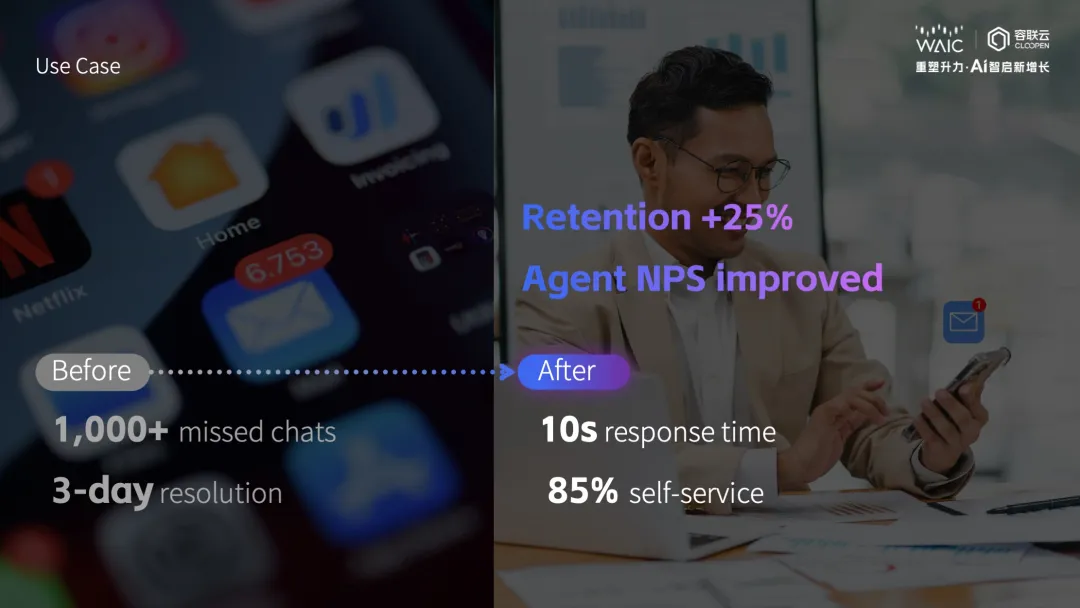
The Southeast Asian market will have ideal conditions for the implementation of AI in the future.
Simon believes that Southeast Asia has the "perfect conditions" for the implementation of AI: young digital-native users, government-level AI strategic support, and continuous growth in technological investment ecosystem. He disclosed that Cloopen AI is deepening the training of local language models, launching dialect-enhanced packages for vertical scenarios such as tourism and fintech, and building a feedback loop system to continuously optimize intent recognition. These measures are driving Southeast Asian enterprises to shift from "testing AI" to "deep deployment of AI".
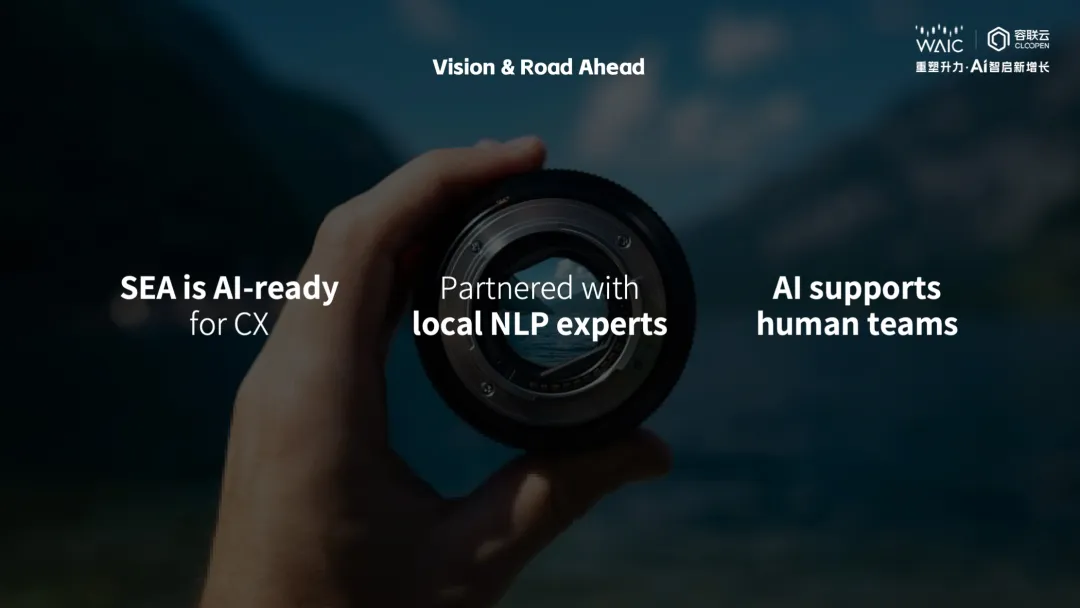
For enterprises that aim to initiate transformation, he suggests starting with a pilot project based on high-frequency consultation intentions to quickly verify the results. "The time is right to lay out AI," Simon concluded. "In Southeast Asia, whoever can effectively utilize AI to solve practical problems will gain the upper hand in the growth competition."